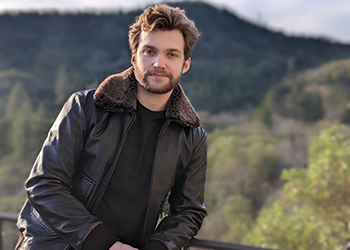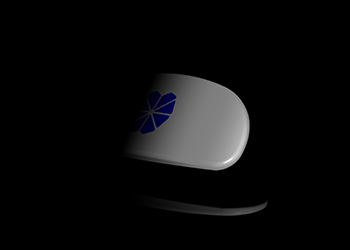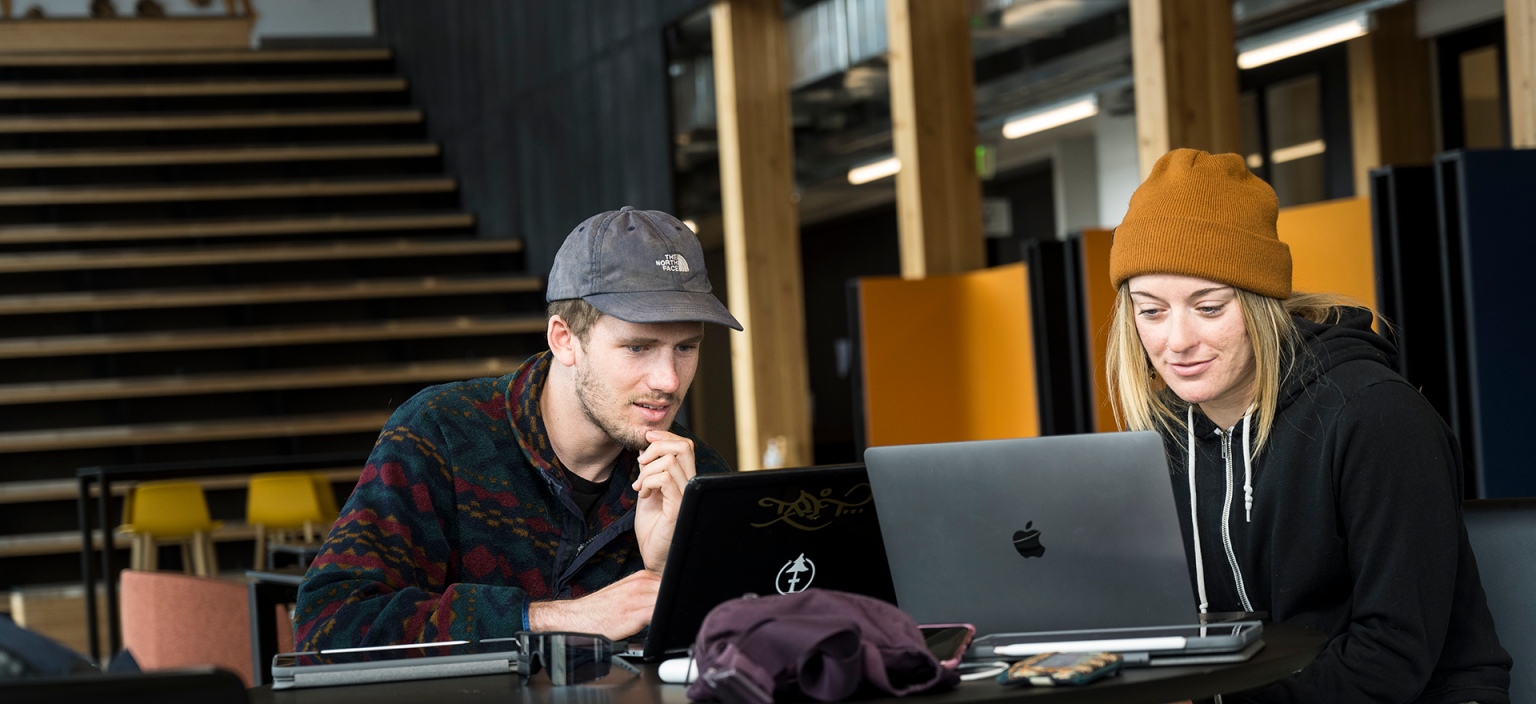Scholarships help student inventor develop learning device
By Siobhan Murray
Let’s say you’re an Oregon State student in 2024. You wake up for a full day of classes, studying, exams and a shift at your campus job. You might even squeeze some time in with some friends. Before leaving your dorm, you slip a device onto your head. We’ll call it a “headband” – although it features electric nodes. It’s discreet enough that no one would even notice it’s there.
Later, in class, you tap your phone screen to activate your device. And then you’re… ready to learn.
The secret is in the neurons, which need a certain amount of electrical impulse to activate. Usually, it takes brain power to get them going, but today the device is stepping in and pre-charging the neurons. They start activating more frequently, creating new neural pathways more quickly. Faster neuron firing equals faster learning. An app on your phone shows your changing brain waves in real time.
And all you feel is a slight tingle.
This is how Sean Bullock, ’24, envisions it, at least. As a mechanical engineering student in the Honors College, he’s developed a neurostimulation device and started a company, Cortava Neurotech, that aims to enhance the way students learn – and manage what he sees as an increasingly unruly load of high demands and stress.

In tandem with skyrocketing student debt – a 700% increase since 1990 – students today experience higher amounts of stress than at any time in U.S. history. In 2022, 81% of OSU students reported moderate or serious psychological distress. At OSU and across the country, students are seeking more mental wellness help, especially since the pandemic.
“I was fascinated with how technology could be used to help restore and improve biological functions in the human body,” Bullock says, whose OSU lab work exposed him to bioengineering. “And I stumbled across this technology called transcranial electrotherapy stimulation.”
He thought it could be the key to helping students better navigate today’s fast-paced, competitive world.
Bullock read about how the technology had been used for over 40 years in the medical community to treat various neurological diseases such as Alzheimer’s, depression and ADHD.
OSU gave him the tools to put his idea into action. He participated in the College of Business’ Launch Academy, where he learned how to develop pitch decks, secure funding and, most importantly, communicate his idea confidently to other people. (It’s hard to get people to take your biotech business pitch seriously when you’re a first-year student, he says.) In his second year, he recruited two other undergraduate students at the time, electrical hardware designer Benjamin Green and app programmer Escher Wright-Dykhouse, and they developed their first prototype in 2022.
Scholarships – including support from manufacturer Weir ESCO in Portland – have enabled Bullock to devote himself to Cortava, often spending 20 hours per week on the enterprise.
“They say time is money, right? But money is also time. Receiving a scholarship means that I don’t have to work full time, and it enables me to pursue my passions, develop my skills and work on projects that can hopefully help a whole lot of people besides myself.”

"Teaser" rendering of the Cortava learning device. The team is comprised of Daniel Bordenave, Sean Bullock, Rij Dorfman, Benjamin Green, Karen Harper, Megan Herrington, Brieanna Jeibmann, Rene Nagy, Estuardo Ramos, Hayley Smith, Nolan Sottoway, and Escher Wright-Dykhouse.
Last year, Cortava won third place at the statewide 2022 InventOR collegiate competition. Bullock’s team has since expanded to twelve OSU students and graduates, with several faculty advisors. They are working with the psychology department to develop a pilot study for fall 2023, which will evaluate the efficacy of the device. They hope to have their device production-ready by 2024.
“I believe innovation is the key to a better world,” Bullock says. “And innovation starts with students.”
Learn about ways to support next generation of student leaders, thinkers and entrepreneurs: OSU Foundation Scholarships and Fellowships

